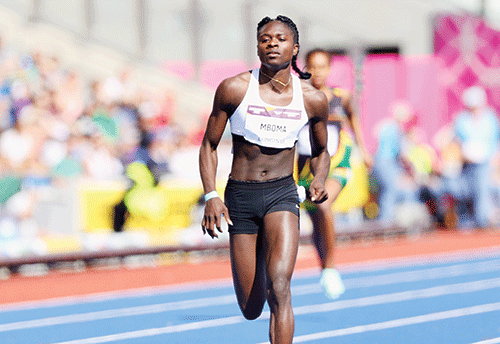The Namibia National Olympic Committee (NNOC), under the leadership of president Abner Xoagub, has yet to respond to the recent announcement made by World Athletics (WA) president Sebastian Coe regarding prize money for Olympians. Coe’s announcement last month stated that WA would be the first sport to offer significant prize money, amounting to approximately N$920 626 (US$50 000) for Olympic gold medallists, starting in Paris this year.
This move aims to redirect the commercial gains of the sport back to the athletes.
The total prize fund of over N$44 million (US$2.4 million) will be sourced from the International Olympic Committee’s (IOC) revenue share allocation, which WA receives every four years.
In the year 2027 to 2020-21, the IOC generated over N$140 billion (US$7.6 billion) in revenue from the Olympic Games.
As the IOC is a non-profit organisation, 90% of the revenue from the Games is reinvested into sport and athletes development, with National Olympic Committees like Namibia’s NOC benefitting from a portion of the funding through programmes such as the Olympic Solidarity Fund to support athletes and coaches in their Olympic preparations.
Despite the significant implications of this decision, Xoagub has not yet articulated the NOC’s stance.
This comes at a time when there are conflicting opinions surrounding the announcement, with the IOC, which is the source of the prize money, expressing dissatisfaction, claiming they were not consulted.
IOC president Thomas Bach emphasised the importance of reducing inequalities between countries, and questioned the focus on prize money, stating that competing in the Games should be its reward.
According to Inside the Games, Bach said national Olympic committees should be the ones to freely decide on athlete prizes as motivation, not the federations.
“International federations must treat all their members and their athletes equally, and try to close the gap between the privileged and the less-privileged,” he said.
Another critic, Cath Bishop, a former British rower and Olympic silver medallist, said it’s the tiniest percentage of athletes who will benefit from this prize money.
“They are already likely to be the best-funded and will in the moment they win, immediately increase their commercial worth.
“What if we thought more innovatively about the principle of giving back to the athletes: what about N$18 457.30 (US$1 000) to every athlete that qualifies to level the playing field? Or funding to athletes from countries without government-backed systems, or support for athletes facing retirement and transition to the next phase of their lives?” asked Bishop.
The Association of Summer Olympic International Federations said giving money to athletes undermines the values of Olympism, and the Association of National Olympic Committees of Africa described the move as a contradiction to the fundamental principles of the Olympic Movement.
Despite the criticism, the chief administrator of the Namibia Sports Commission, Freddy Mwiya, welcomed the news.
“This is good for athletes. To compete at the Olympic level is costly. Some countries don’t have the finances to support athletes so they can make a living from the money,” said Mwiya.
Christine Mboma, Namibia’s Olympic silver medallist, said she is not even thinking of the prize money, as she doesn’t run for money.
In contrast, voices like former world record-holder Colin Jackson, who won silver for Britain in the 1988 Olympics, see the prize money as a form of appreciation for top athletes, and believe it maintains the integrity of the sport as it is sourced from WA rather than the Olympics directly.
“The Olympics will always be great, and the money is coming from WA.
It keeps some purity in that sense,” he told the Guardian.
-lmupetami@nepc.com.na


